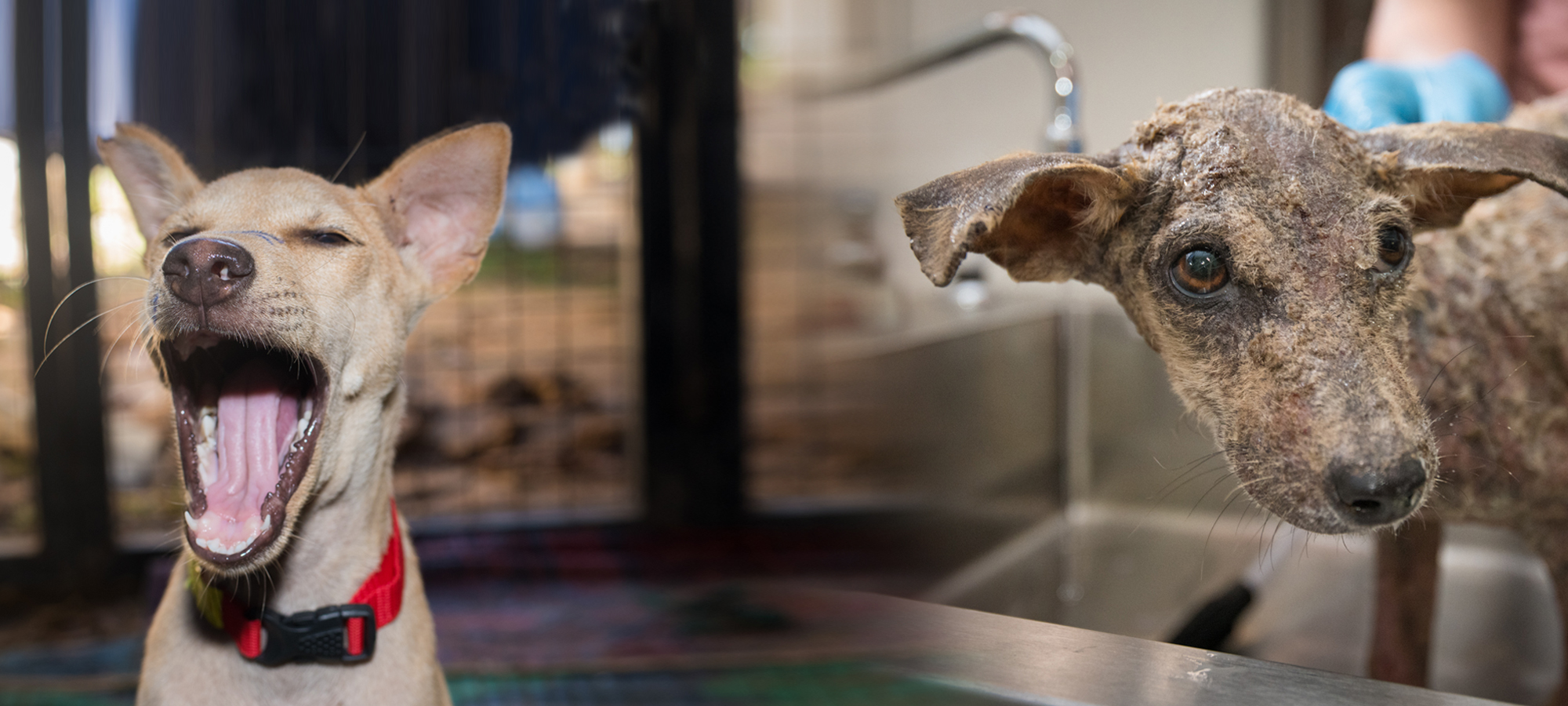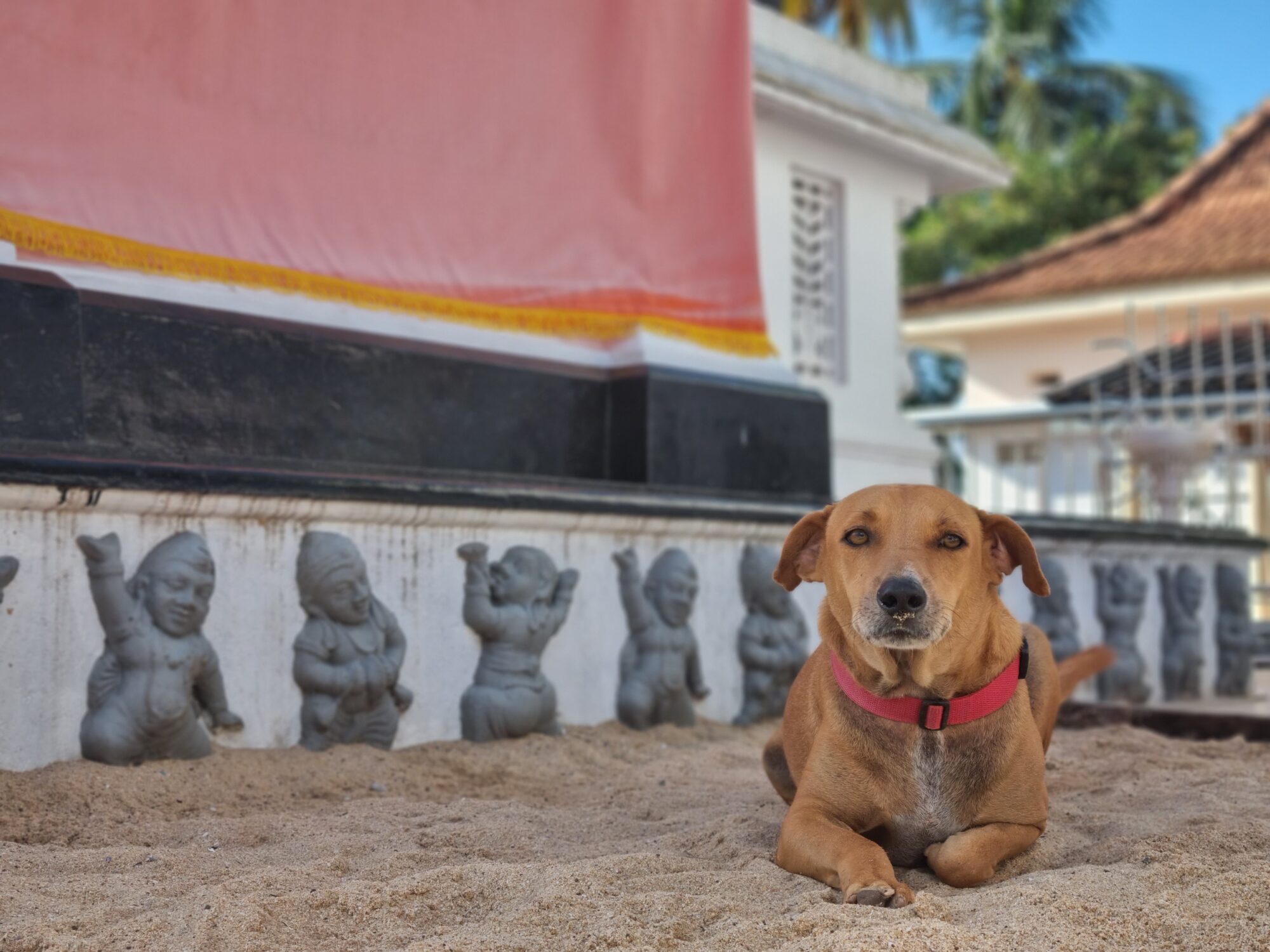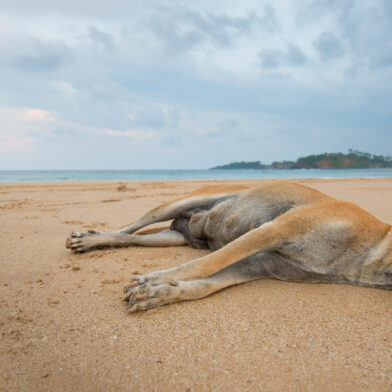
Sri Lanka has many animal lovers, but – just like every other country in the world – there is a small minority of people whose morals leave a lot to be desired.
We understand that animal welfare hasn’t been a priority in a country that’s been ravaged by war, terrorist attacks, the pandemic and a crippling economic crisis, but there is absolutely no excuse for deliberate animal cruelty.
Here at WECare, we’ve seen a large number of cruelty cases over the years, including wilful neglect, knife and gunshot wounds, intentional poisoning, deliberate burns from hot water or fire, and horrific injuries due to dogs eating hakkapattas (small bombs hidden in food, that are illegally laid out to kill wild boar).
Frustratingly, there’s currently very little that can be done to punish the perpetrators, thanks to Sri Lanka’s archaic animal welfare laws, which are so useless they may as well not exist.
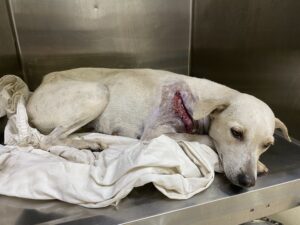
The history of Sri Lanka’s animal welfare laws
In 1907, the Prevention of Cruelty to Animals Ordinance was brought in to protect animals, imposing a maximum fine of 100rs (£0.24/$0.27) for mistreating or torturing a domestic or captured animal, and/or up to three months in jail. If the animal is killed, the jail term can be raised to six months, but the fine remains at a measly 100rs.
Shockingly, these laws have remained unchanged since 1907 – a whopping 115 years ago. Back then, 100rs meant something, but in today’s economy? You can’t even buy a portion of rice and curry for that price.
Activists have been campaigning since 2006 for a new set of laws – called the Animal Welfare Bill – to replace the outdated Prevention of Cruelty to Animals Ordinance. The new bill was drafted back in 2006, but frustratingly, has never come into fruition.
In 2019, the case of two-year-old Labrador, Charlie, caused uproar when he was doused in kerosene and burned alive in his locked kennel, by a neighbour who was annoyed at his barking. Shockingly, while the suspect was apprehended, he was released on a 5,000rs (£11.50/$13.60) bail, and no further action was taken.
In January 2022, the Cabinet of Ministers finally approved the new Animal Welfare Bill, which covers owned, wild, farm and stray animals. The new bill has a proposed maximum fine of 125,000rs (£302/$341) and/or a minimum jail term of three years.
A positive step, right? You’d think so. However, new bills in Sri Lanka have to go through a process of three parliamentary readings before being gazetted AKA made law, and the second reading was scheduled for 5th April of this year. Unfortunately, this was at the height of the country’s economic crisis, and – following huge anti-government protests – the Cabinet of Ministers resigned en masse on 3rd April, just two days before the reading was due. This meant the new bill, once again, fell to the bottom of the pile.
We’re now in November 2022, with another new government, and frustratingly, the Animal Welfare Bill has moved no further in parliament.
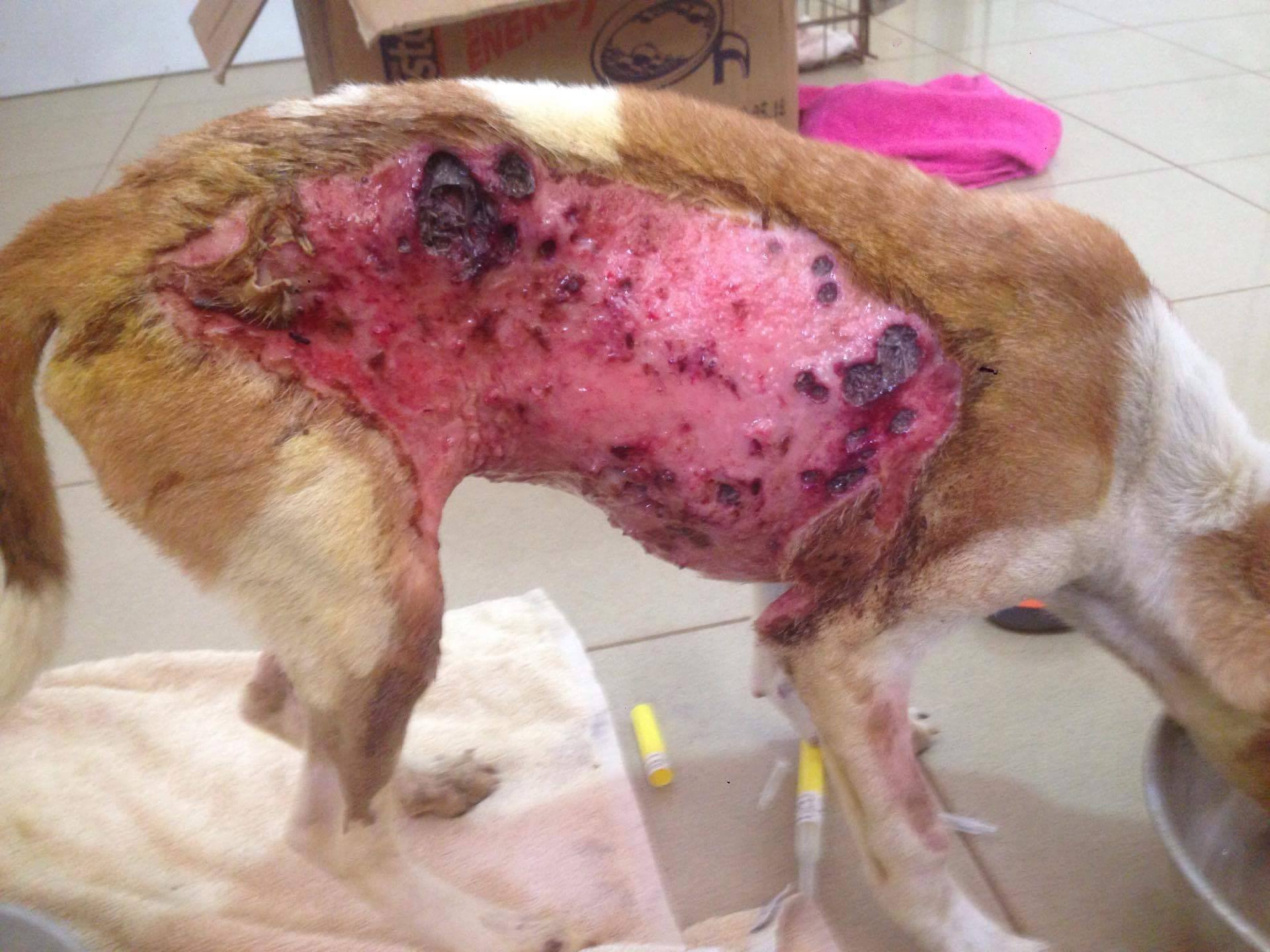
What’s the hold up?
The new Animal Welfare Bill would cover all animals, which has ruffled some feathers, especially in the meat industry. There is currently no law in Sri Lanka requiring the humane slaughter of animals bred for food, and the new bill would change that. Groundviews reports that many in the meat industry are against it, as they argue that the introduction of humane slaughter would be a huge expense for them.
There’s also fear that the new laws would oppose Halal slaughter.
“Humane slaughter is opposed by a majority of the Muslim community who view it as a threat to their religious practice of Halal slaughter,” attorney-at-law and animal welfare activist Lalani Perera told Sri Lanka’s Daily Mirror.
“But humane slaughter does not necessarily contradict Halal slaughter.
“The nuanced animal rights campaigner does not fight against any race or religion, but only pleads for the animal’s welfare.”
The new bill would also affect elephants – who are often chained up at Buddhist temples and forced to parade in processions – and wildlife safaris, which are a huge moneymaker for the tourism industry.
However, we’d argue that ethical treatment of animals at temples and on safaris can only be a good thing for the international image of the island.
(We would also strongly advise tourists to heavily research any safari they plan to take part in – we’ve sadly seen firsthand how unethical some tour operators can be when it comes to crowding wild animals in national parks.)
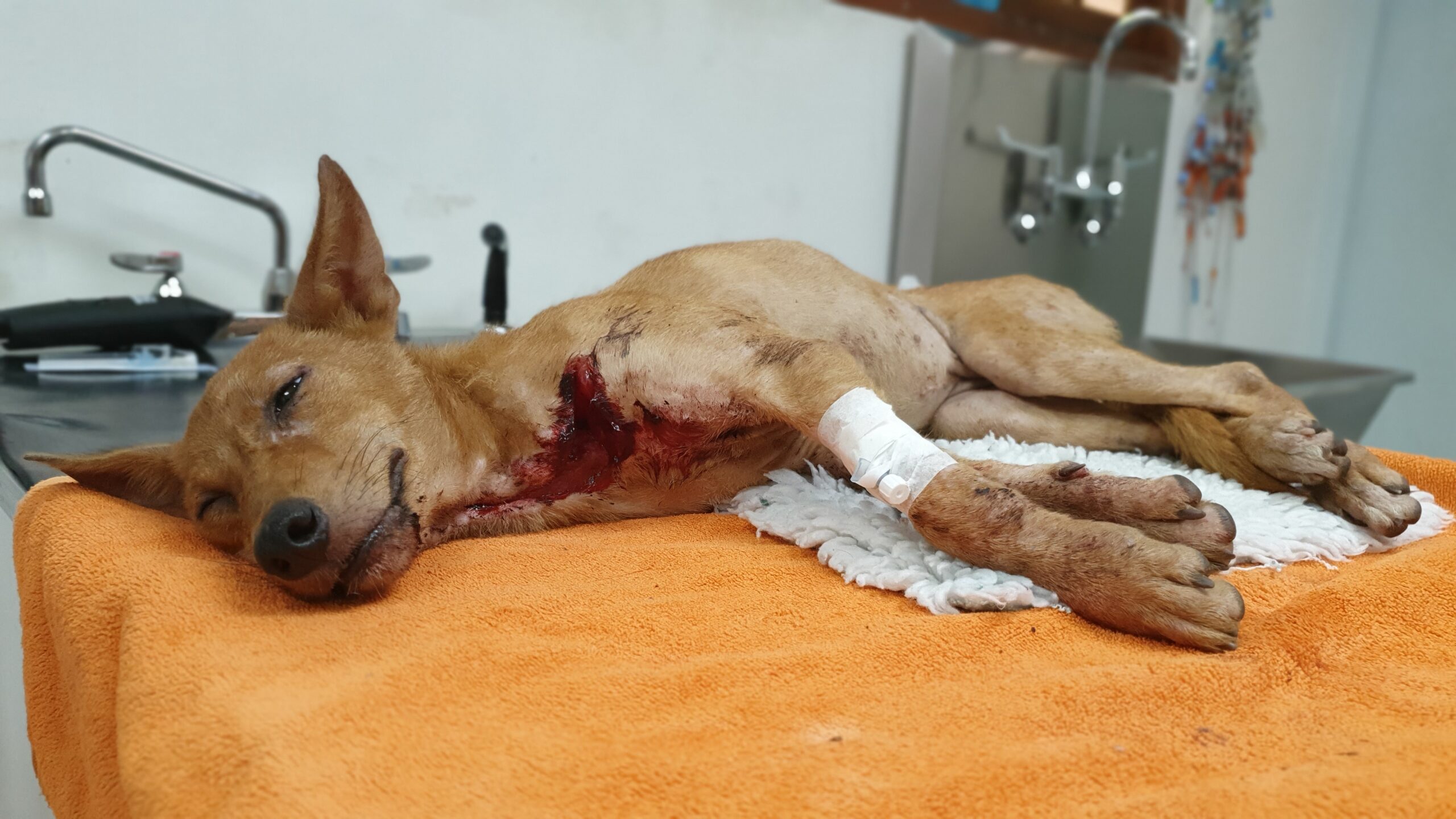
Will the Animal Welfare Bill make a difference?
This is a good question, and only time will tell.
The most recent Sri Lanka police performance report (dated 2018 – no reports have been made public since) shows that in 2018, 772 cases were reported under the current animal welfare laws.
Will there be a higher number of reported cases if the Animal Welfare Bill is brought in and people know there’s a chance of justice?
It all depends on how seriously the authorities take the new laws, as it will be the island’s police force enforcing them. It’s imperative that all officers receive adequate training and understand the importance of animal welfare.
There also needs to be a cultural shift towards viewing all animals as sentient beings that deserve the same level of compassion as we give our fellow humans. As a community, we need to come together to protect these animals.
However, we hope that having the bill gazetted will send out a strong message that all animal lives matter – that can only be a good thing, right?
With the new laws in place, we’d have the power to push for legal action regarding any cruelty cases that come into the hospital, which we hope will deter others against such behaviour.
Whatever the outcome of the new bill, we believe it’s a step in the right direction for not only the millins of street dogs in Sri Lanka, but every living being here.
WECare receives no government support, so we can only continue our work with your help. With costs at an all-time high, we’re really struggling, so if you’d like to help out, please click the button below – thank you.
Share this post
Go on, give it a share and spread the word about WECare to all your online pals!
Related reads
